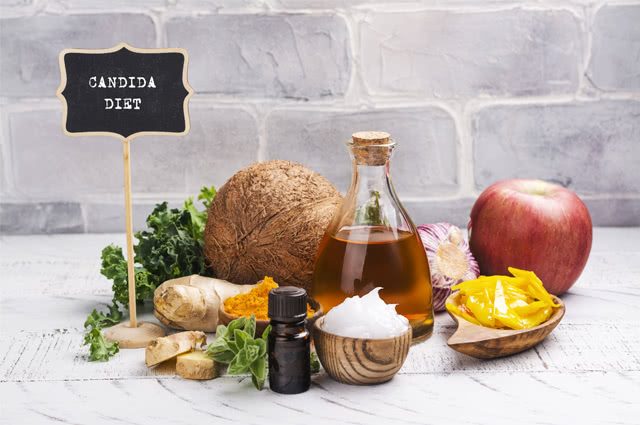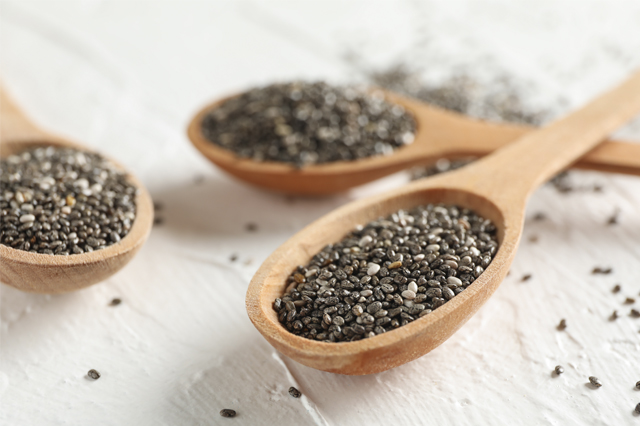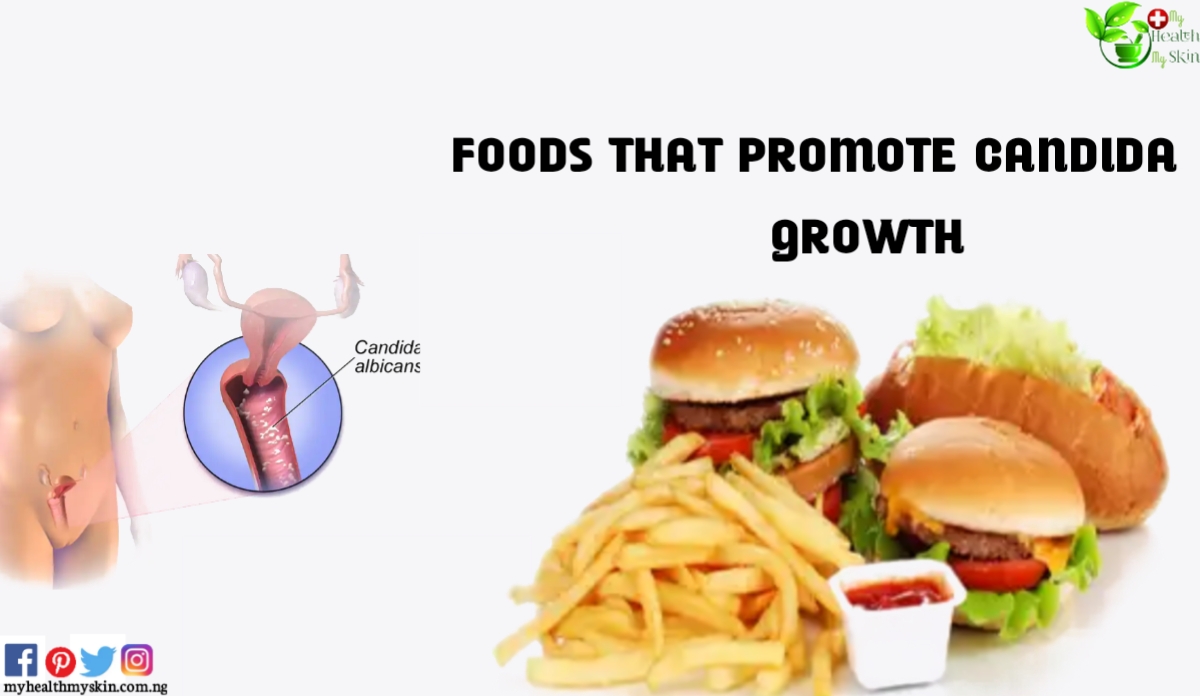In general, Candida albicans is present in small numbers and harmoniously in the digestive tract and vaginal area, being called commensal, without causing symptoms.

If there is an excessive growth of this fungus, we have a serious problem, which can progress to chronic candidiasis, which is difficult to treat and eradicate.
Candida overgrowth causes disturbances and symptoms in virtually every system of the body: gastrointestinal, genitourinary, endocrine, cutaneous, nervous and immune .
Let’s understand a little more about the foods that contribute to the growth of this fungus and which are the ones that fight candidiasis.
Foods that nourish candida
Various foods help to stimulate Candida overgrowth. The main culprits are: sugar, milk, gluten, ultra-processed foods (chemical additives) and those that contain a high content of fungi and yeasts.
It is essential to avoid any food that causes allergies, detected by specific tests.
The wrong diet causes changes in the intestinal flora (microbiota), leading to the predominance of bacterial and fungal species linked to inflammation.

Sugar
Candida infestation causes cravings for sweets and carbohydrates: sugar is its main nutrient.
Restricting the consumption of simple carbohydrates is an absolute necessity in the treatment of chronic candidiasis: sugar (white, crystal, brown, demerara, organic, coconut), honey, fruit juice, sweetened yogurts, sweets in general, floury products such as breads and biscuits, white and brown rice.
Milk
You should restrict or eliminate milk, as it is rich in lactose, a type of sugar that also feeds Candida.
Furthermore, milk is one of the most frequent food allergens, which worsens the intestinal barrier function, causes inflammation (dysbiosis) and contributes to the spread of the fungus.
Gluten and Yeast
Gluten (present in wheat flour), ultra-processed foods and artificial sweeteners can sensitize the intestinal wall and modify the flora, favoring Candida.
Foods containing yeast, fungus or mold include fermented alcoholic beverages, breads, dried fruits, mushrooms, peanuts, dried corn, soy sauce.
Fermented foods such as natural yoghurt, kefir and kombucha can be taken in moderation, despite differences in this regard.
Foods that normalize candida

Knowing what to avoid (sugar, milk, gluten, simple carbohydrates, ultra-processed and allergenic foods), here are some suggestions for the menu to be adopted.
The anti-Candida diet is made with real food, natural foods, vegetables, vegetables, fruits, proteins and quality fats.
Vegetables
Vegetables with low carbohydrate content can be consumed freely: green leaves , asparagus, cabbage , broccoli, cauliflower, celery, cucumber, tomato, eggplant, onion, spinach, zucchini, etc.
Potatoes can be entered in moderation. Low glycemic index fruits are released: lemon, strawberry, pear, apple, kiwi, melon.
Sweeter fruits such as bananas, mangoes, persimmons and grapes should be consumed in moderation.
Proteins and fats
Proteins such as meat, chicken, fish and eggs are part of this diet and must be ingested daily.
Healthy fats are also welcome: avocados, olives, coconut oil, extra virgin olive oil .
Dairy products with a low lactose content can also be on the menu: butter, ghee, kefir, plain yogurt (no sugar).
Seeds and spices
Oilseeds are rich in good fats, vitamins and minerals, and low in simple carbohydrates: almonds, sunflower and pumpkin seeds, coconut, chia, flaxseed , macadamia nuts.

Herbs and spices boost the immune system and can be used at will: black and red pepper, cinnamon, garlic, ginger, oregano, rosemary, paprika, turmeric and thyme .
Condiments and sweeteners
Released condiments: apple cider vinegar, coconut amines and nutritional yeast.
Natural sweeteners: stevia, erythritol, xylitol. Drinks: natural or sparkling water, coffee, all teas, lemon water, coconut water, kombucha (in moderation -100 to 200 ml per day).
How to replace
If you have an irresistible craving for sweets, eat chocolates sweetened with stevia or xylitol (there are several options on the market) or prepare a low- carb snack (there are countless recipes on the internet).
Avoid products that contain artificial sweeteners (aspartame, sucralose, acesulfame-K, saccharin, cyclamate), as they negatively alter the composition of the microbiota.
In the case of milk, if there is no allergy, the lacfree version can be used, but the ideal is to substitute vegetable milk.







